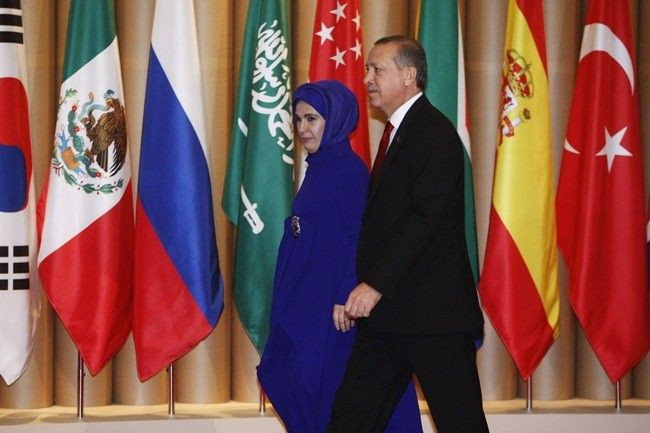US skeptical about Turkey's reliability as a partner

The U.S. has many doubts about its long-term ally Turkey's dependability as a partner, according to diplomatic cables that were leaked by WikiLeaks on Sunday evening.
Confidential cables from the U.S. Embassy in Ankara describe Islamist tendencies in the government of Prime Minister Recep Tayyip Erdogan, Germany's Der Spiegel, which received some of the leaked documents, said.
The Turkish leadership is depicted as divided, and PM Erdogan's advisers, as well as Foreign Minister Ahmeet Davutoglu, are portrayed as having little understanding of politics beyond Ankara, the magazine said.
Turkey and the U.S. shared a cordial relationship since 1947, when U.S. guaranteed the security of Turkey and Greece from Soviet forces. Turkey remained a close ally of the U.S. through the Cold War and through the late 1990s and post-World Trade attacks in the U.S.
Cordial relationship with the U.S. was believed to be crucial to Turkey's security.
However, the relationship has been strained since the Iraq war, as Turkey grows warier about the creation of an independent Kurdish state.
Turkey has also remained against U.S. sanctions against Iran, with whom Ankara has long maintained economic and ties. PM Erdogan visited Teheran in May 2010 to make an agreement to outsource Iranian uranium enrichment to Turkey.
According to the leaked cables, Foreign Minister Davutoglu told U.S. envoy Phil Gordan that Iran cannot be bullied into compliance with western demands, the Guardian reported.
The document stated: The Iranians have said they are willing to meet with Solana, but have told the Turks that they have serious problems with Cooper and the British.
The documents also state that the Iranians have more trust in the U.S. and would prefer to get fuel from the U.S. rather than the Russians.
Regarding discussions of IAEA proposal to send Iran's low-enriched uranium to Turkey, U.S. assistant secretary of state Phil Gordon pressed Davutoglu on Ankara's assessment on consequences if Iran gets a nuclear weapon.
Davutoglu gave a spirited reply, that 'of course' Turkey was aware of this risk. This is precisely why Turkey is working so hard with the Iranians, The Guardian said.
Documents revealed that the U.S. is worried about Davutoglu's alleged neo-Ottoman visions, according to Spiegel. U.S. diplomats quote one high-ranking government adviser as saying that Davutoglu would use his Islamist influence on Erdogan, describing him as exceptionally dangerous, the magazine said.
The U.S. continues to worry the pervading influence of Islam and Islamist tendencies in the region. Diplomats noted that many members of the AK Party (AKP) were members of a Muslim fraternity and the PM had appointed Islamist bankers to influential positions.
The diplomats reported that Erdogan gets his information almost exclusively form newspapers with close links to Islamists, the magazine reported.
The Islamist-based AKP came into power in 2002, causing concern among various secularist opposition parties about the resurgence of a traditional society deeply rooted in Islam.
The secularist opposition has challenged the constitutional right of the AK to be the party of the government since the 2002 elections, BBC said.
© Copyright IBTimes 2024. All rights reserved.





















